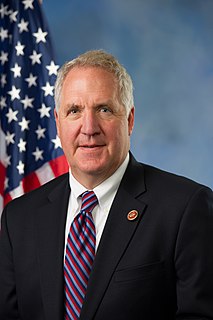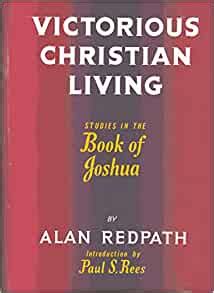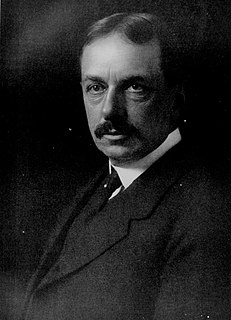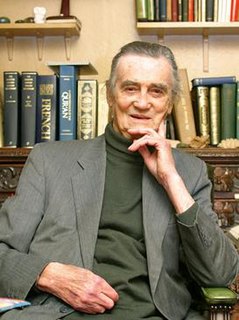A Quote by Spencer W. Kimball
Destroy the seed and the plant will never grow. Man alone, of all creatures of earth, can change his thought pattern and become the architect of his destiny.
Related Quotes
Genesis 8:22 As long as the earth endures, seed time and harvest, cold and heat, summer and winter, day and night, will never cease. I believe [without evidence] that is the infallible word of God and that's the way it is going to be for his creation. The earth will end only when God declares its time to be over. Man will not destroy this earth. This earth will not be destroyed by a flood.
Man cannot survive except through his mind. He comes on earth unarmed. His brain is his only weapon. Animals obtain food by force. man had no claws, no fangs, no horns, no great strength of muscle. He must plant his food or hunt it. To plant, he needs a process of thought. To hunt, he needs weapons,and to make weapons - a process of thought. From this simplest necessity to the highest religious abstraction, from the wheel to the skyscraper, everything we are and we have comes from a single attribute of man -the function of his reasoning mind.
Only when there is a wilderness can man harmonize his inner being with the wavelengths of the earth. When the earth, its products, its creatures, become his concern, man is caught up in a cause greater than his own life and more meaningful. Only when man loses himself in an endeavor of that magnitude does he walk and live with humanity and reverence.
The merit of Marx is that he suddenly produces a qualitative change in the history of social thought. He interprets history, understands its dynamic, predicts the future, but in addition to predicting it (which would satisfy his scientific obligation), he expresses a revolutionary concept: the world must not only be interpreted, it must be transformed. Man ceases to be the slave and tool of his environment and converts himself into the architect of his own destiny.
When a man finds that it is his destiny to suffer, he will have to accept his suffering as his task. . . . He will have to acknowledge the fact that even in suffering he is unique and alone in the universe. No one can relieve him of his suffering or suffer in his place. His unique opportunity lies in the way in which he bears his burden.
When a man finds that it is his destiny to suffer, he will have to accept his suffering as his task; his single and unique task. He will have to acknowledge the fact that even in suffering he is unique and alone in the universe. No one can relieve him of his suffering or suffer in his place. His unique opportunity lies in the way in which he bears his burden.
I cannot define for you what God is. I can only say that my work has proved empirically that the pattern of God exists in every man and that this pattern has at its disposal the greatest of all his energies for transformation and transfiguration of his natural being. Not only the meaning of his life but his renewal and his institutions depend on his conscious relationship with this pattern of his collective unconscious.
In any case, if I grow hybrid maize or hybrid pearl mallet or any hybrid, I have to sow fresh seed every year. I cannot keep the seed of the same plant. If I keep the seed of the same plant, yield will be much less and there will be a wide variation in the field, like maturity period, quality and so on.
At this day . . . the earth sustains on her bosom many monster minds, minds which are not afraid to employ the seed of Deity deposited in human nature as a means of suppressing the name of God. Can anything be more detestable than this madness in man, who, finding God a hundred times both in his body and his soul, makes his excellence in this respect a pretext for denying that there is a God? He will not say that chance has made him different from the brutes; . . . but, substituting Nature as the architect of the universe, he suppresses the name of God.
The all-round liberally educated man, from Palaeolithic times to the time when the earth shall become a cold cinder, will always be the same, namely, the man who follows his standards of truth and beauty, who employs his learning and observation, his reason, his expression, for purposes of production, that is, to add something of his own to the stock of the world's ideas.
The average mind requires a change of environment before he can change his thought. He has to go somewhere or bring into his presence something that will suggest a new line of thinking and feeling. The master mind, however, can change his thought whenever he so desires. A change of scene is not necessary, because such a mind is not controlled from without. A change of scene will not produce a change of thought in the master mind unless he so elects.
Certain mystical philosophers have personified Destiny, and from this point of view each man's personal destiny is his archetype or "other self"--his "angel"--with whom he must be reunited if he is to rise above his fragmentary identity as a worldling and become whole, as he is (and always has been) in the mind of God.
































